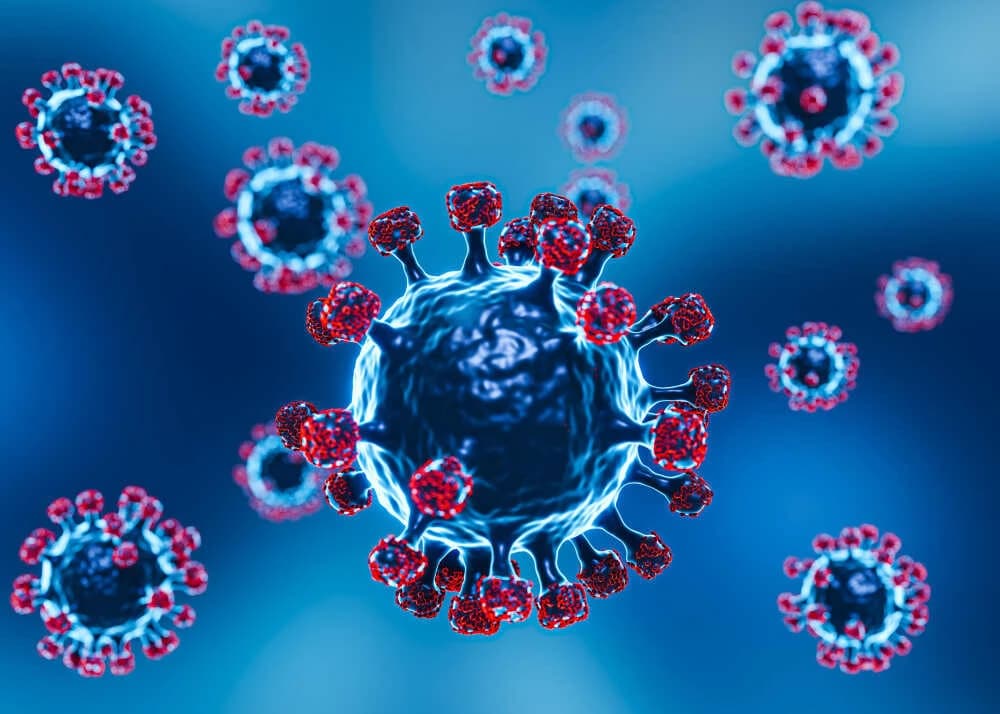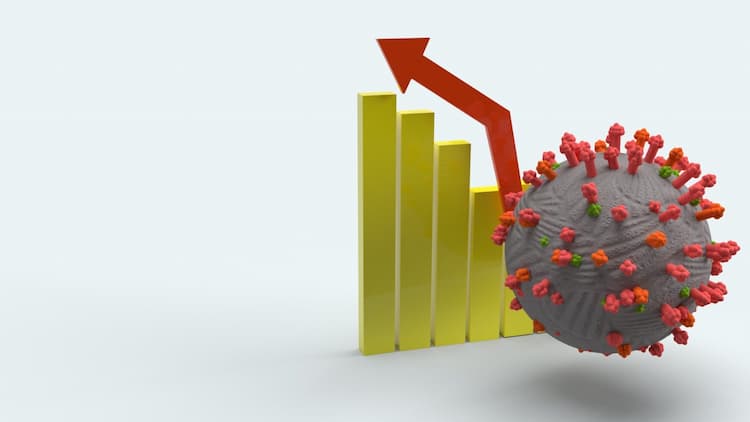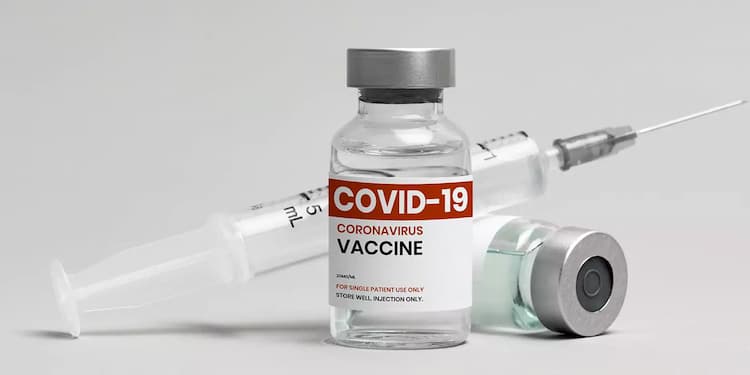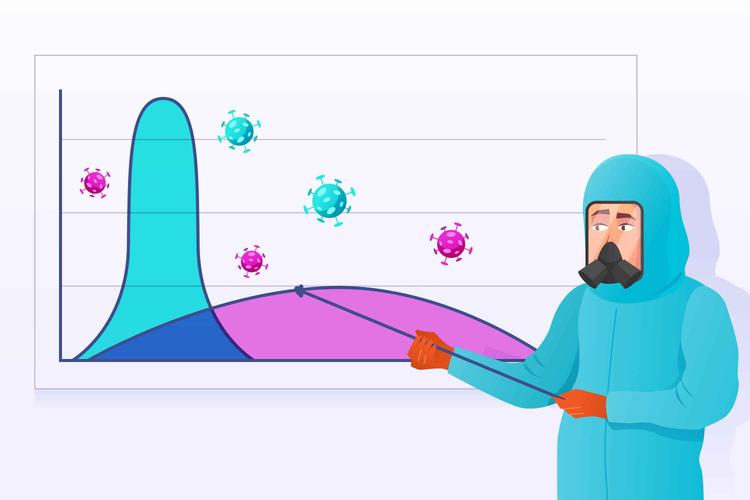How Dangerous is the JN.1 Covid-19 Variant? Health Risks, Symptoms, Prevention Tips

Medically Reviewed By
Dr Divya Rohra
Written By Kirti Saxena
on Feb 3, 2024
Last Edit Made By Kirti Saxena
on Mar 17, 2024

India has recently reported an alarming surge of COVID-19 new Variant JN.1. There has been a significant rise in cases in southern India- with many people suffering from fever, cold, cough, and sore throat. The cases of new variants are rising in Kerala; the Union health ministry has written to states and UTs to monitor the symptoms and illness, conduct adequate testing, and send all positive samples for whole genome sequencing. The Government has advised people to wear masks and follow social distancing. The official stated that the situation is under control, and the government has advised people not to worry and not to trust unreliable sources of information that mislead. Most people infected with the virus experience mild to moderate symptoms and recover without any special treatment. People suspected of getting an infection must get COVID-19 RT PCR testing from reliable labs. Read the complete article to learn about health risks, symptoms, and prevention tips.
What is the New variant JN.1?
This JN.1 Covid subvariant, initially identified in Luxembourg, is a descendant of the Pirola variant (BA.2.86), which originates in the Omicron sub-variant. JN.1 is a descendant of the BA.2.86 sub-variant (commonly known as Pirola), first detected in the United States in September 2023. JN.1 appears to spread more quickly than other circulating variants, possibly due to mutations in its spike protein.
Symptoms of Covid-19 variant JN.1
According to WHO, the symptoms of this Covid-19 variant can be mild to severe. Here are some common symptoms-
- Fever
- Cough
- Runny nose
- Sore throat
- Headache
- Muscle aches
- Some people might lose taste or smell.
- Some people might experience mild nausea, vomiting, or diarrhea
- The new variant may cause loss of appetite and persistent nausea.
If you are experiencing the above symptoms, seek medical consultation.
Who is at risk of New Covid-19 Variant JN.1?
While the virus is easily transmissible, it is important to identify the high-risk groups. These are-
- People who are older than 65 years are at high risk.
- Type 1 or type 2 diabetic Patients
- People with Dementia or other neurological conditions
- People with Cystic fibrosis
- People who have preexisting health conditions like COPD, heart diseases, chronic kidney diseases, heart diseases, and liver disease are at high risk.
- The people who are obese
- Pregnant women
- Smokers
- People who have weak immunity
- Healthcare workers
- People who are not vaccinated or Unboosted
How to protect yourself against COVID-19 variants?
While new variants like JN.1 cases are on the rise, there are still many ways in which you can effectively protect yourself and your loved ones against COVID-19 variants:
Get Vaccinated
The COVID-19 vaccine helps you protect yourself from the virus and lowers the risk of getting sick. Therefore, it’s essential that you are updated on COVID-19 vaccines. Moreover, don’t forget to update yourself with your COVID-19 booster shots, especially for people with weak immune systems.
Wear Masks
Wearing a mask reduces the chances of getting infected. So, whenever you are going outside, always wear masks. Masks prevent droplets and particles you breathe, cough, or sneeze out. Various marks are available, but experts advise wearing high-filtration masks like N95 for extra protection and precaution. Also, change your mask at regular intervals. These marks block droplets and particles you breathe and protect you from spreading them. Wear fitted marks on your face over your mouth and nose, which is also comfortable for you.
Boost your immunity
In addition to preventive measures, remember to boost your immune system with a healthy diet. Maintain a healthy and nutritious diet, sleep well, exercise, and manage stress. A strong immune system can protect you from severe health issues and will also aid in fighting off viral invaders.
Testing and Self-Isolation
If found positive, then avoid going outside and stay in self-isolation. Get tested promptly if you are suspected of noticing symptoms like a cold, cough, or fever. Early detection can help you and your loved ones to get infected and break the chain of transmission. Get isolated if you found COVID-19 positive. Always be informed about testing guidelines and follow recommended protocols. Get a COVID RT PCR Test from Redcliffe Labs to know your Covid-19 status.
Maintain proper Hygiene
The transmission of viruses can be controlled with proper hygiene. Therefore, clean your hands with alcohol-based hand sanitiser or soap and water. However, regularly disinfect surfaces such as door handles and phone screens. In case you are susceptible to the Covid, get tested.
Social Distancing
The closer you are, the greater the risk of COVID-19, which means the virus can easily spread in closed spaces. As per the experts, the new variant JN.1 is easily transmissible. However, the best protection against COVID-19 is maintaining social distancing. To avoid possible exposure, avoid crowded places and maintain distance from people who have COVID or have symptoms of it.
Takeaway
According to the CDC, the JN.1 is more transmissible than other COVID strains. But more than 90% of COVID cases in India are mild and can be treated in home isolation. If you are experiencing symptoms like fever, cough, and difficulty breathing, it’s better to get tested, self-isolate and seek medical attention.
The winter season coincides with the flu season. It’s important to recognize the difference in symptoms and get tested properly to control the virus transmission. However, the new COVID variant JN.1 is a reminder that the pandemic is still ongoing, and we should take preventive and precautionary measures to avoid severe health risks. Keep up to date on the latest information from Government officials, WHO, and health authorities.


